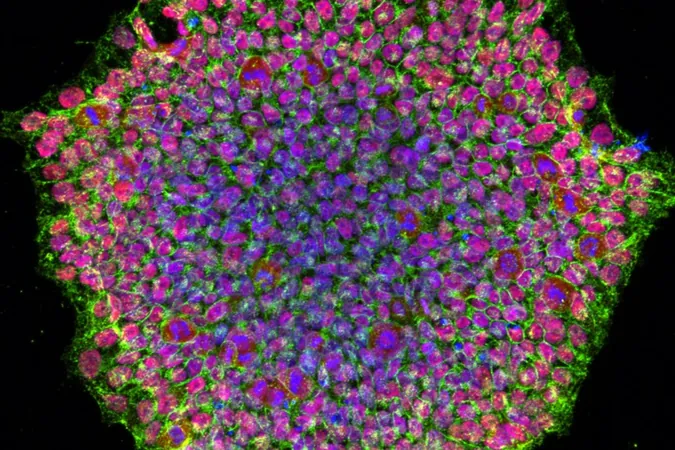
Breakthrough in Type 1 Diabetes Treatment: Can Stem Cells Offer a Permanent Cure?
2024-10-07
Author: Wei Ling
Breakthrough in Type 1 Diabetes Treatment: Can Stem Cells Offer a Permanent Cure?
Type 1 diabetes has long been regarded as an incurable autoimmune disease, where the body's own immune system mistakenly targets and destroys insulin-producing cells in the pancreas. This destruction leads to a lifelong dependence on insulin injections for regulated blood sugar control. However, a groundbreaking new study could change everything. A woman has reportedly been free of diabetes for over a year, thanks to an innovative treatment utilizing her own stem cells, as highlighted in a recent publication in Nature.
Innovative Method for Creating Pluripotent Stem Cells
What distinguishes this research from traditional stem cell therapies is the method employed to create pluripotent stem cells. Instead of the conventional genetic modification, the researchers extracted stem cells directly from the patient and reverted them back to their early developmental stage using specific chemicals. This method significantly reduces the risk of complications like potential cancer caused by genomic alterations, making it a safer option for patients.
Successful Human Trials with Islet Cells
This study marks a first in using this method in human subjects. The researchers successfully created islet cells, which were then injected—approximately 1.5 million of them—into the patient's abdominal muscles. This novel delivery site is strategically chosen for its ease of monitoring and the feasibility of removal should any complications arise, unlike the traditional site of the liver.
Promising Results and Ongoing Challenges
Excitingly, the results have been promising. The patient in question has not experienced any adverse effects in the year following her treatment, and two other individuals involved in the trial are also showing encouraging results. However, a lingering question remains: does the autoimmune response that originally damaged the islets persist? This is particularly challenging to assess given that the woman is on immunosuppressants due to a prior liver transplant.
Implications for the Future of Type 1 Diabetes Treatment
The implications of this research are immense. If these methods can be reliably replicated, it could pave the way for a lasting solution for millions of people grappling with type 1 diabetes. Ongoing trials are exploring various avenues, including the use of pluripotent cells and transplanted islets, that may finally offer hope for a permanent treatment.
Conclusion: A Revolutionary Step in Diabetes Research
As the medical community watches closely, this study represents not just a breakthrough for a single patient but potentially a revolutionary step in the fight against type 1 diabetes. Could this be the game changer we’ve all been waiting for? Stay tuned as we follow this remarkable journey toward a possible cure!


 Brasil (PT)
Brasil (PT)
 Canada (EN)
Canada (EN)
 Chile (ES)
Chile (ES)
 España (ES)
España (ES)
 France (FR)
France (FR)
 Hong Kong (EN)
Hong Kong (EN)
 Italia (IT)
Italia (IT)
 日本 (JA)
日本 (JA)
 Magyarország (HU)
Magyarország (HU)
 Norge (NO)
Norge (NO)
 Polska (PL)
Polska (PL)
 Schweiz (DE)
Schweiz (DE)
 Singapore (EN)
Singapore (EN)
 Sverige (SV)
Sverige (SV)
 Suomi (FI)
Suomi (FI)
 Türkiye (TR)
Türkiye (TR)